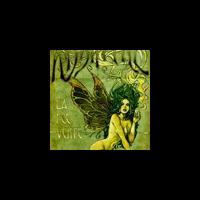Esperanto estas seeping into my Japanese.
viết bởi Aubright, Ngày 02 tháng 2 năm 2013
Tin nhắn: 30
Nội dung: English
Aubright (Xem thông tin cá nhân) 06:02:33 Ngày 02 tháng 2 năm 2013
Demian (Xem thông tin cá nhân) 06:32:41 Ngày 02 tháng 2 năm 2013
Aubright:...I was curious if this happens/ has happened to any of you with languages you have studied.This has happened several times to despite that I am no fluent speaker.
It does feel strange when you remember "altrude" but forget "impose" and "thopna" (Punjabi) and "marhna" (Hindi/Urdu). Then you have to turn to Esperanto dictionary to find out what the word was in your language. I did that this week.
sudanglo (Xem thông tin cá nhân) 11:00:42 Ngày 02 tháng 2 năm 2013
scorpjke (Xem thông tin cá nhân) 11:39:34 Ngày 02 tháng 2 năm 2013
And wa in Japanese does not mean is, am, are at all. It is a so-called theme paeticlewhich you normally put after the subject (but still not always) to show what you are describing. I understand why wa might seem to be a copula - because in a simple sentence construction "A is B" which is "A wa B (desu/da)" the copula "da" is omitted in colloquial speech if it is not followed by end-sentence particles like yo and/or ne and ohers like kara, kedo.
So you shouldn't confuse estas with wa ^^
Ganove (Xem thông tin cá nhân) 12:36:06 Ngày 02 tháng 2 năm 2013
Aubright:[...] I was curious if this happens/ has happened to any of you with languages you have studied.Oh yeah, just a few weeks ago. I tried to speak Spanish with a boy from Barcelona and I used the Esperanto "manĝi" instead of the Spanish "comer" but I was amazed that he understood the word "manĝi" because then he said that "manĝar" is Catalan and not Spanish and since Catalan is his native language he understand what I tried to say.
Maybe Zamenhof adopted the Catalan "manĝar" and adapted it to the Esperanto "manĝi".
Breto (Xem thông tin cá nhân) 14:43:05 Ngày 02 tháng 2 năm 2013
Though it doesn't happen much anymore, because it has sadly been years since I've had occasion to practice my German, every so often I'll find myself dropping German words like ja, echt, or ohne into my English, too.
whysea (Xem thông tin cá nhân) 16:05:05 Ngày 02 tháng 2 năm 2013
I remember at work one time I was trying to tell a lady that we'd receive a delivery on Saturday, and I said "sabato" instead of Spanish "sábado"...luckily they're close enough that she understood haha.
Aubright (Xem thông tin cá nhân) 16:54:25 Ngày 02 tháng 2 năm 2013
erinja (Xem thông tin cá nhân) 00:21:39 Ngày 03 tháng 2 năm 2013
Ganove:Maybe Zamenhof adopted the Catalan "manĝar" and adapted it to the Esperanto "manĝi".Unlikely. He probably got it from the French "manger".
-----
As a beginner in Yiddish, I had issues with Esperanto seeping in, especially if I had just returned from an Esperanto event. However I have not generally had issues, now or in the past, with Esperanto influencing my English after returning from a long event.
verdafeino (Xem thông tin cá nhân) 02:48:50 Ngày 03 tháng 2 năm 2013
I catch myself starting an English sentence with "ĉu" or ending with "ĉu ne?" sometimes. I almost say "nu..." too, when I'm thinking of what to say next.





